Dive into the world of sustainable tourism with insights from Green Sail’s 2023 Panel discussion in Šibenik, Croatia
Author: Hannah Scallion
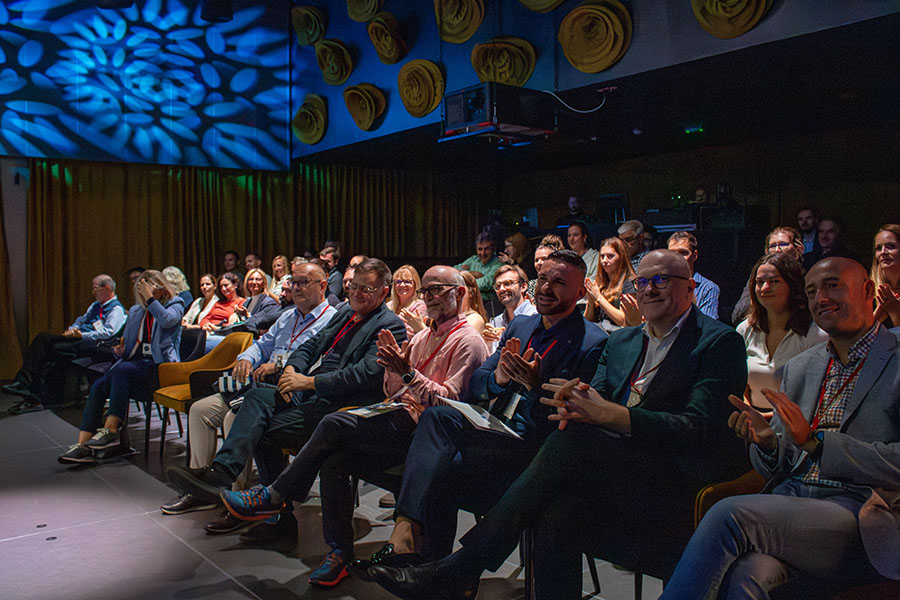
‘Can Croatia be the Leading Destination in the World for Sustainable Nautical Tourism?’ was the formidable question this year’s panellists faced in our latest panel. Composed of scientists, ministry officials and more, the night saw the discussion of waste management, over-tourism, harmful cleaning products, and the future of hydrogen technologies.
The discussion kicked off with an intriguing question: ‘What does sustainable tourism really mean for Croatia?’ Panellist Paško Klisović, the President of the Association of Nautical Tourism (HGK) stated that “We are as sustainable as conditions allow…. not more, or not less, than the rest of other tourism”. Join us as we unveil the key takeaways from this conversation.
Navigating Controversy: Black Water Waste Management
Amidst a range of opinions and innovative ideas, our discussion on black water waste management spotlighted a critical theme: the balance between sustainability and its practicalities. But here's the promising part – Klisović highlighted a shift in attitude over the last 4 or 5 years. With nautical tourism’s influence expanding, emphasis on sustainability follows.
Klisović passionately called for pump-out facilities, envisioning them to work similarly to the refuelling stations we currently use. At this point, an impassioned member of the audience interjected, raising a critical question about the relevance of pump-out systems. As chemical treatments are frequently absent, without this, they argued, we fail to address the core issue of waste disposal in our precious seas. Neven Cukrov, a Scientific Advisor at the Department of Marine and Environmental Research furthered the discussion by emphasising the environmental benefits of releasing blackwater into the open sea - preferably about 12 miles from the coast - rather than routing it into the city's sewage system. He pointed out that the primary concern is the risk of releasing sewage too close to coastlines. The ensuing counterarguments further underlined the intricacies of this debate, raising questions for what Croatia's path to a sustainable future in nautical tourism will really look like.
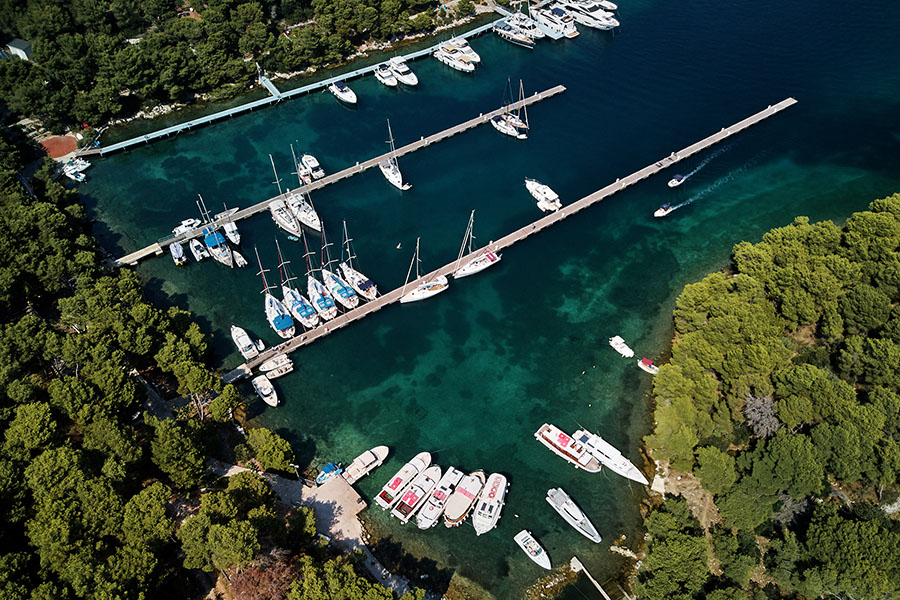
Managing Over-Tourism: Steering Croatia's Nautical Future
We also dived headfirst into the critical topic of managing over-tourism within Croatia's nautical sector. As many of us in the industry can attest, during peak season, the focus on sustainable practices gives way to the imperative of meeting customer expectations and embracing convenience-driven choices that enhance their overall experience. The sheer volume of tourists further complicates the challenge, making it increasingly difficult to strike that delicate balance.
Saša Popovac from the department for Market Research and Analytics described Croatia's competitive advantage as its beauty. He passionately advocated for the importance of preserving one of Croatia's most robust economic assets, its tourism sector, to ensure that not only Croatians but also future generations of tourists, can continue to enjoy the same experiences. Managing the demands in the high season, especially in the most popular areas such as Hvar and Brač will continue to be a challenge, Popovac argued. He added that It is possible the bearing capacity of these areas may already be being breached.
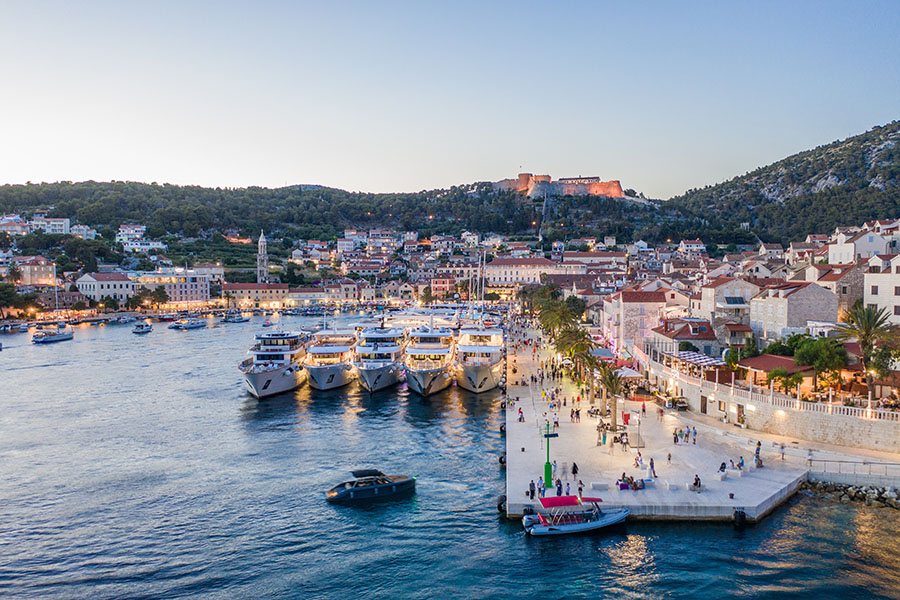
Water Pollution from Cleaners and Anti-Fouling
We also had a lively discussion about the negative environmental effects of detergents, boat cleaners and anti-fouling agents on our beloved seas. Cukrov proposed regulations for extremely toxic chemicals while lightening the tax load on ecologically safe alternatives. He pointed to a study revealing a startling fact: in the Krka estuary, copper concentrations surged 22 times higher during the high season compared to winter periods. "It's already toxic for some phytoplankton and maybe some small zooplankton,” he emphasised. For many of the chemicals found in cleaning agents, it is difficult to predict the effects we’ll see in 10, 20 or 50 years time.
With a confusing mix of branding and greenwashing, it can be challenging to pinpoint the cleaning products that truly mitigate these adverse effects. To compound this issue, the typically elevated cost of eco-friendly detergents and cleaners can leave consumers with minimal incentive to choose such products. This, in turn, creates additional barriers to transitioning towards more sustainable practices. Again, the arguments raised here underscore a broader challenge of bridging the gap between eco-conscious choices and consumer-friendly economics.
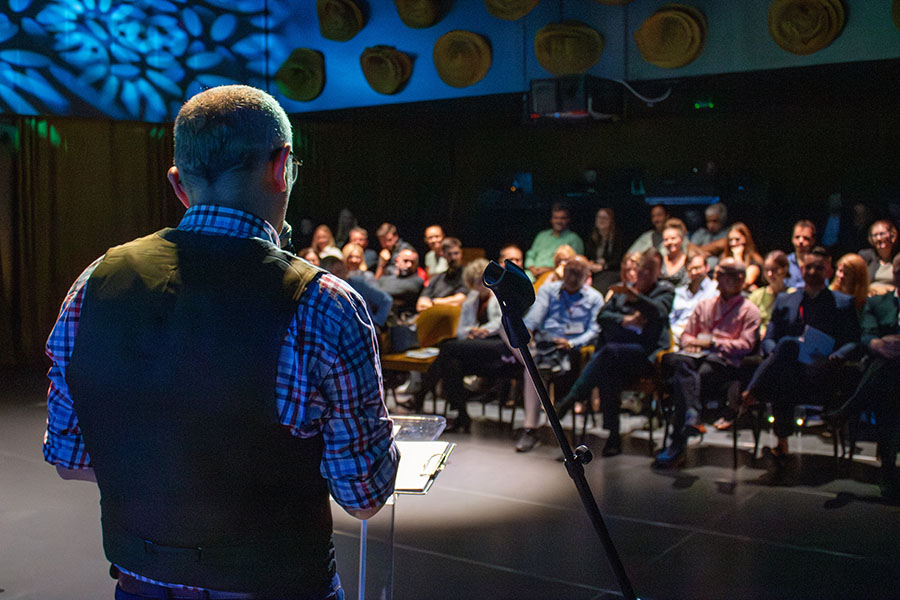
Emerging Technologies: Riding the Hydrogen Wave
On a brighter note, the panel also delved into how emerging technologies could mitigate the environmental impacts of the nautical industry. President of the Croatian Hydrogen Association Frano Barbir was questioned about the prospective role of hydrogen as a renewable fuel source within the nautical industry. One of Barbir’s notable mentions was the North Adriatic Hydrogen Valley Project, an initiative partly funded by the EU. This collaborative endeavour involving Slovenia, parts of Italy and Croatia aims to introduce hydrogen-powered boats and establish hydrogen refuelling infrastructure within the next six years. Barbir also ventured to predict that hydrogen-based fuel sources for sailboats might become commercially available in just a few short years.
Nevertheless, there are certain drawbacks to consider. Barbir acknowledged that whilst hydrogen is a promising fuel source, its lower efficiency as a storage method in comparison to battery means it will not be a “fix-all”. “The smaller the engine, the smaller the range, the more difficult it is for the engine to compete with batteries” Barbir stated. These comments only further underline the need to weigh trade-offs and explore all possibilities in navigating this complex yet promising terrain. In the meantime, dive into our dedicated hydrogen blog post for an in-depth look at this exciting technological frontier.
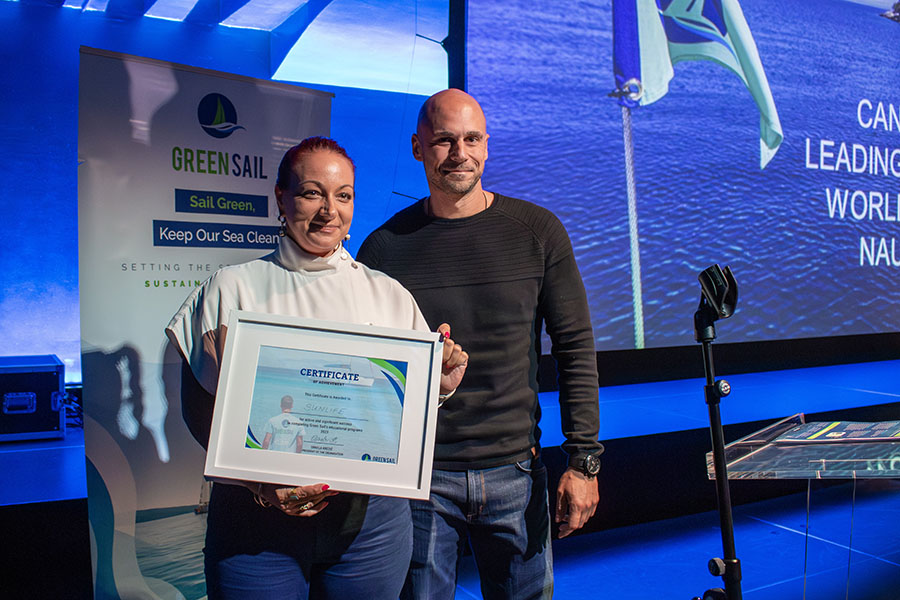
So, Can Croatia Lead the World on Nautical Sustainability?
It was Renata Franc’s answer that received a round of applause: “I’m sceptical”. The behavioural scientist was clearly not alone in this sentiment, with the response clearly resonating with attendees. While some of the other panellists were more optimistic, the concluding statements served to underscore the complexity of the challenges and the long road to sustainability ahead. With Croatian livelihoods, income, and natural beauty at stake, the stakes of this topic are high.
Nevertheless, the event concluded on a positive note as Goran Colak, an Indoor Freediving Champion presented "Certificates of Achievement" to Charter Partners who have demonstrated unwavering commitment to sustainable nautical practices. The well-deserved recipients of these certificates were Orvas Yachting, Sunlife Charter and More Yacht Club. Their hard work signifies a step toward a more sustainable future in Croatia's nautical tourism industry, even as it grapples with its multifaceted challenges.

